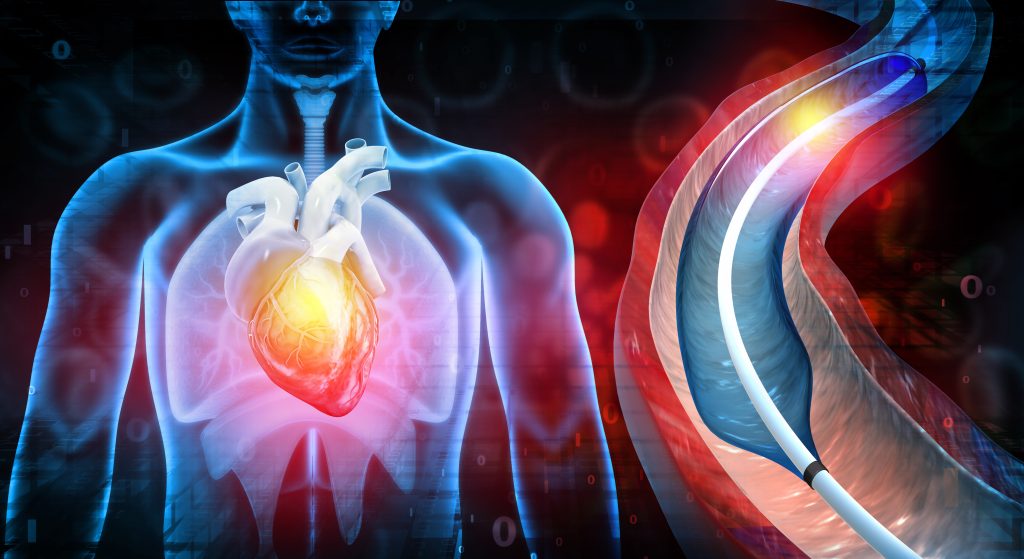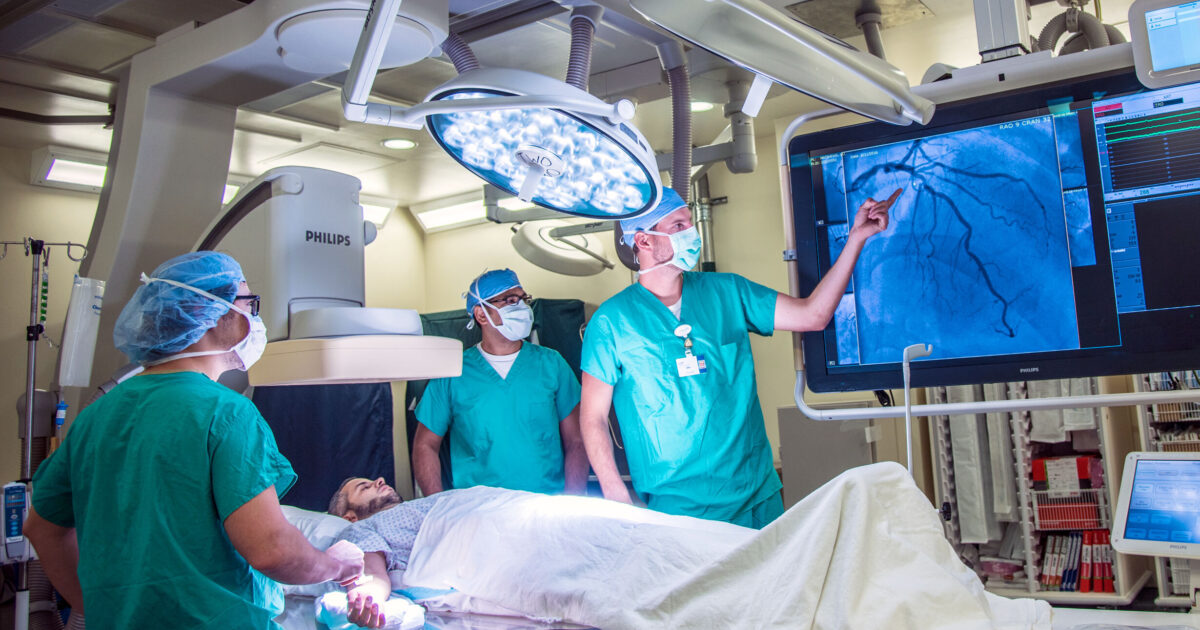Ten benefits of choosing Cardiology Jupiter for cardiovascular well-being
Ten benefits of choosing Cardiology Jupiter for cardiovascular well-being
Blog Article
Comprehending the Importance of Cardiology in Modern Medical Care Services
Cardiology plays a vital duty in modern-day healthcare, particularly as heart illness remains to be the leading root cause of mortality worldwide. Advancements in diagnostics and therapy have actually changed person treatment, allowing earlier treatments and enhanced results. In addition, the change towards preventive cardiology encourages individuals to handle their health and wellness proactively. As modern technology continues to progress, the assimilation of innovative remedies might even more redefine cardiology's impact on public wellness, triggering a more detailed exam of emerging trends and their implications.
The Occurrence of Heart Problem and Its Influence on Public Health And Wellness
Although heart illness remains the leading reason of death internationally, its influence prolongs much beyond private clients to influence public health and wellness systems and economic climates. The high occurrence of heart problem puts a significant pressure on health care resources, demanding raised financing for prevention, treatment, and rehabilitation programs. Public health campaigns should attend to risk elements such as obesity, smoking, and less active lifestyles, which add considerably to the increasing incidence of heart conditions.Moreover, the financial burden related to heart problem is tremendous, encompassing not only straight medical prices but additionally indirect costs associated with shed productivity and early mortality. Neighborhoods deal with challenges in managing these prices, frequently leading to differences in medical care gain access to and outcomes. As the populace ages and lifestyle-related threats proceed to escalate, the urgency for reliable cardiology interventions comes to be critical. Subsequently, addressing cardiovascular disease is not just a matter of private health but additionally an essential public health and wellness concern.
Breakthroughs in Heart Diagnostics and Imaging Techniques
Current developments in heart diagnostics and imaging methods have actually reinvented the field of cardiology, enhancing the capability to find and monitor heart problem. Strategies such as cardiac MRI, CT angiography, and echocardiography have ended up being increasingly advanced, providing detailed photos of cardiac structures and features. These modalities permit the early recognition of problems like coronary artery illness, cardiac arrest, and valvular disorders.Moreover, advancements in non-invasive diagnostics, such as wearable modern technology and remote monitoring tools, have actually equipped clients and healthcare carriers. These tools facilitate real-time monitoring of heart rhythms and various other important indicators, resulting in timely interventions. Furthermore, synthetic knowledge is being incorporated right into imaging evaluation, improving accuracy and effectiveness in diagnosis.
Advancements in Treatment Options for Heart Conditions
Recent advancements in cardiology have brought about substantial developments in therapy options for heart problems. These include innovative medical techniques that improve step-by-step outcomes and arising medications that supply new methods for therapy. As the field progresses, these developments play a crucial role in enhancing individual treatment and outcomes.
Advanced Surgical Techniques
Innovations in medical techniques have transformed the landscape of cardiology, providing new expect people with heart disease. Minimally invasive treatments, such as catheter-based interventions, have substantially minimized recovery times and medical facility keeps. Strategies like robotic-assisted surgery improve precision, enabling cosmetic surgeons to navigate complex physiological structures with higher accuracy. Additionally, improvements in imaging innovation promote real-time visualization throughout procedures, improving results. Transcatheter aortic shutoff substitute (TAVR) exemplifies a breakthrough in treating aortic stenosis, allowing valve replacement without open-heart surgical procedure. In addition, hybrid strategies that incorporate catheter-based and medical techniques provide tailored solutions for numerous cardiac concerns. These innovative surgical methods not only boost patient safety but additionally increase therapy choices, emphasizing the vital role of technology in modern cardiology techniques.
Arising Medications and Treatments
As the landscape of cardiology remains to develop, arising medicines and therapies play a critical duty in enhancing treatment choices for heart conditions. Developments such as unique anticoagulants and progressed lipid-lowering representatives have actually changed the administration of heart diseases, significantly minimizing client morbidity and death. Furthermore, the advancement of genetics therapies and regenerative medicine offers appealing opportunities for treating conditions formerly considered incurable. Professional tests are consistently revealing the effectiveness of these therapies, pressing the borders of traditional treatments. The integration of electronic wellness modern technologies promotes customized medication, permitting for customized therapy strategies based on genetic and way of life elements. Jointly, these developments underscore the dynamic nature of cardiology, enhancing person end results and redefining criteria of treatment in modern healthcare.
The Duty of Preventive Cardiology in Individual Treatment
Preventive cardiology plays a crucial role in individual treatment by concentrating on the recognition of danger aspects that contribute to heart problem. Via way of living adjustment methods and early detection techniques, health care companies can efficiently minimize the occurrence of cardio occasions - Cardiology care. This positive approach not only improves client outcomes but also advertises long-lasting health
Danger Variable Recognition
While heart diseases remain a leading reason for morbidity and mortality worldwide, efficient threat aspect recognition acts as a cornerstone of preventative cardiology. Identifying danger aspects such as hypertension, family, hyperlipidemia, and diabetes background is necessary for very early treatment. Health care specialists make use of different evaluating methods to evaluate these variables, enabling tailored safety nets. Additionally, recognizing a client's way of life selections, such as smoking cigarettes and physical inactivity, additionally educates threat analyses. This detailed examination allows medical professionals to develop individualized treatment plans intended at mitigating risks. By prioritizing risk variable identification, medical care systems can enhance client results and reduce the total worry of cardiovascular illness, eventually adding to boosted public health and wellness techniques and source allowance.
Lifestyle Adjustment Strategies
A wide range of studies highlights the important duty of way of life alteration techniques in reducing heart disease danger. These approaches include dietary adjustments, raised exercise, smoking cigarettes cessation, and weight administration. By embracing a heart-healthy diet abundant in fruits, veggies, entire grains, and lean healthy proteins, people can reduce cholesterol levels and high blood pressure. Regular physical task enhances the heart and boosts general cardio wellness. In addition, quitting cigarette smoking greatly decreases the threat of heart disease and improves recovery rates for those with status quo. Weight administration even more contributes to cardio health and wellness by reducing various other threat factors such as diabetic issues and high blood pressure. Executing these way of living alters not just advertises individual wellness yet additionally functions as a keystone of precautionary cardiology in individual care.
Very Early Discovery Strategies
Lifestyle adjustments considerably add to reducing cardiovascular condition risks, but they are most efficient when coupled with very early discovery techniques. Preventative cardiology emphasizes the value of identifying potential heart concerns prior to they escalate right into severe conditions. Strategies such as high blood pressure tracking, cholesterol testing, and progressed imaging modern technologies like echocardiograms play critical roles in assessing cardiovascular health and wellness. Biomarkers and genetic testing likewise boost the precision of very early detection, permitting customized preventive methods. Routine cardiac risk assessments encourage health care companies to interfere proactively, potentially stopping heart strikes and strokes (Cardiology). By integrating these very early detection techniques right into routine treatment, patients can take advantage of timely way of life interventions and targeted therapies, ultimately improving outcomes and boosting top quality of life
Integrating Technology Into Cardiology Practices
As improvements in technology remain to improve various fields, the assimilation of innovative tools and systems right into cardiology techniques has actually come to be important for improving individual treatment and outcomes. Telemedicine platforms permit cardiologists to keep an eye on individuals from another location, improving accessibility to care while lowering the burden on medical care centers. Wearable tools, such as smartwatches, make it possible for continual heart rate surveillance, alerting both doctors and clients to prospective issues in real-time. Additionally, man-made intelligence (AI) is being used to analyze huge quantities of cardiac information, assisting in early medical diagnosis and individualized treatment strategies. Advanced imaging strategies, including 3D echocardiography, improve visualization of heart structures, leading to a lot more accurate interventions. Digital health documents (EHRs) enhance person info administration, ensuring that cardiologists have immediate accessibility to important data. With each other, these technological innovations are transforming cardiology, advertising positive administration and boosted health end results for clients with cardio conditions.
The Value of Person Education and Interaction
Person education and involvement play a critical role in the management of cardio health and wellness. By equipping patients with expertise about their conditions, therapy choices, and way of living modifications, doctor equip individuals to take an energetic function in their care. This aggressive method can lead to boosted adherence to recommended drugs, dietary adjustments, and exercise regimens, eventually lowering the danger of complications.Engagement additionally fosters a strong patient-provider connection, motivating open interaction and trust. When clients feel informed and entailed, they are extra likely to voice issues and ask concerns, which can result in better clinical end results. Additionally, academic resources, such as workshops or electronic systems, can boost understanding and promote self-management methods. Overall, focusing on patient education and learning and involvement is crucial for enhancing cardio health, enhancing lifestyle, and decreasing medical care expenses connected with heart diseases.
Future Trends in Cardiology and Their Potential Effect

Frequently Asked Questions
What Way Of Living Changes Can Lower Heart Problem Threat?
The current question addresses way of living adjustments that can considerably decrease cardiovascular disease danger. Cardiology. Embracing a balanced diet, participating in routine physical activity, preserving a healthy and balanced weight, handling anxiety, and staying clear of tobacco can notably enhance cardio health
Exactly How Can I Acknowledge Early Indications of Heart Problems?
Identifying very early signs of heart issues entails surveillance symptoms such as breast pain, lack of breath, tiredness, and irregular heartbeat. Prompt understanding of these indications can trigger essential medical examination and intervention for far better results.
What Are the Differences In Between Cardiologists and Cardiac Surgeons?
The differences in between cardiologists and heart surgeons depend on their functions; cardiologists primarily take care of and detect heart problems with non-invasive approaches, while cardiac surgeons carry out medical procedures to fix architectural heart problems. Each plays a crucial, unique duty.

Just how Usually Should I Obtain My Heart Health Checked?
The frequency of heart medical examination varies based on individual danger elements. Typically, grownups need to undertake examinations each to two years, while those with present problems may need more regular evaluations as advised by healthcare experts.
What Role Does Genes Play in Cardiovascular Disease Danger?
Genes look at here now substantially influences heart condition danger, with familial patterns indicating acquired conditions. Certain genetics can predispose people to hypertension, cholesterol issues, and various other cardiovascular problems, highlighting the relevance of genetic screening in reviewing heart health and wellness. Heart disease remains the leading reason of fatality globally, its impact prolongs much past specific patients to influence public health and wellness systems and economic climates. Public health campaigns must address risk elements such as weight problems, cigarette smoking, and inactive way of lives, which add significantly to the rising occurrence of heart conditions.Moreover, the financial burden connected with heart condition is tremendous, encompassing not just straight medical prices yet additionally indirect expenditures associated to lost performance and early mortality. Preventive cardiology plays an essential duty in individual treatment by focusing on the identification of threat factors that add to heart illness. Fabricated intelligence (AI) and machine learning are enhancing diagnostics resource and individual tracking, making it possible for early discovery of heart diseases. The differences between cardiologists and cardiac cosmetic surgeons lie in their roles; cardiologists primarily diagnose and handle heart problems with non-invasive methods, while heart doctors perform surgical procedures to deal with architectural heart problems.
Report this page